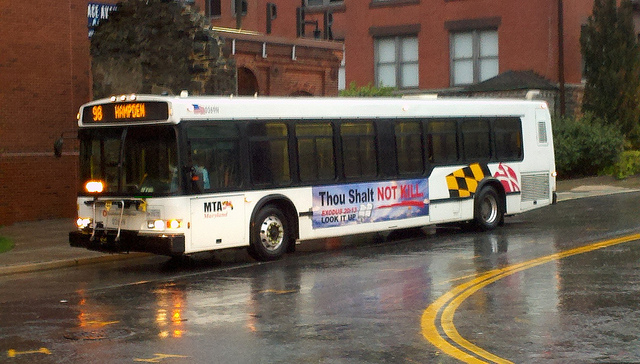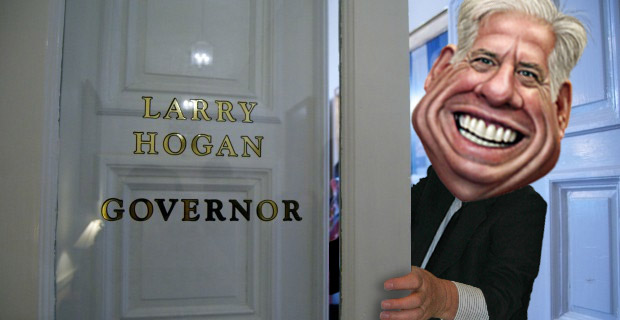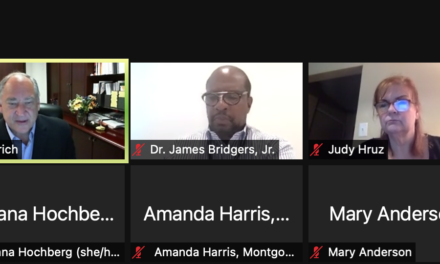Photo by skabat169 with Flickr Creative Commons License
By Charlie Hayward
CharlieHayward@MarylandReporter.com
Where there’s smoke there’s fire.
This is the message from a report just issued by legislative auditors describing a laundry list of serious findings about the Maryland Transit Administration, leading them to make a criminal referral to the Attorney General’s Criminal Investigations Division.
The Maryland Transit Administration’s (MTA) Office of Training and Development teamed with Towson State University’s Division of Economic and Community Outreach (DECO) to provide various training and ancillary services for MTA workers.
However, the audit said neither entity kept adequate records supporting $11.3 million of spending (about 10% paid with federal money) during the period 2010 – 2013. There was a pervasive absence of internal control and a variety of irregularities:
- Interagency agreements with DECO enabled MTA to circumvent state procurement regulations
- Lack of proper controls precluded effective monitoring of services and billings
- MTA did not adequately follow up on certain questionable activities
Among the report’s low-lights were a $200,000 no-bid contract awarded by DECO (at the express direction of MTA) to the spouse of an MTA employee (since fired) and $93,000 expended for a non-existent “Roads Scholar” program.
Auditors criticized the unchecked growth of the training programs, beginning with a staff of 11 and ballooning 334% in dollars spent during four years to as many as 57 persons. They also said the agreements DECO signed were inconsistent with its mission.
In other words, the agreements represented special treatment afforded to MTA that nobody at Towson University or DECO actively investigated or stopped.
Auditors estimated DECO was paid a $629,000 “administrative fee” for its role in MTA’s scheme, even though auditors said the contract did not provide for such a fee.
Long list of problems
The audit said the Maryland Transit Administration:
- Failed to adequately investigate allegations of malfeasance, and violated an Executive Order by the governor that required it to refer potential criminal activity to the attorney general.
- Did nothing to segregate incompatible duties over the DECO agreements by giving one employee “unilateral control” over interagency agreements.
- Augmented its staff beyond legal budgetary caps.
- Circumvented state regulations requiring competitive procurements.
- Failed to keep training records such as class registration, class sign-in sheets and course outlines.
Facilitating malfeasance
The auditor suggested DECO facilitated or leveraged MTA’s malfeasance by:
- Failing to retain an adequate set of contracting files.
- Awarding no-bid contracts to three vendors hand picked by MTA in violation of state procurement policy.
- Billing MTA without documentation for contractor and subcontractor charges totaling $968,100 (including the $200,000 contract with the MTA employee’s spouse.)
- Submitting documentation to the auditors that “appeared questionable.” In other words, the auditors thought the documentation might have been doctored.
- Performing no oversight and monitoring of the activities performed by these individuals even though the agreement required DECO to plan and carry out the staff-training program.
- Failing to submit quarterly progress reports required by its contract.
- Billing MTA $110,000 for purported work using hourly rates and overhead that were neither provided in the contract nor described in the billings.
Response to Audit
MTA responded to the audit by admitting “egregious behavior” and concurring with all recommendations.
MTA said it is cooperating with the criminal investigation and performing reviews — that it should have done earlier — including “…an extensive evaluation of the fiscal year 2012 course development and delivery agreements to determine if the agreed upon deliverables were obtained.”
MTA said it terminated the employment services agreement with DECO effective June 30, 2013. Lastly, MTA said any “…employee [who] circumvents state procurement laws and processes, [will be subject to] disciplinary action, including possible termination….”
Neither DECO nor Towson State formally responded. The auditors cited the university’s response to findings and recommendations published in a 2013 audit of Towson State.







It keeps on getting “better” doesn’t it ?
I wonder if this story was reported in the Baltimore Sun ? Probably not…
It wasn’t reported on the TV news…
No surprise here, but rest assured this is a pittance compared to the contracting irregularities and lack of oversight with the multi-billion dollar expenditures for the planned red & purple lines. Heck, MTA doesn’t even police fares on the light rail, so thousands are riding for free. Mass transit in Baltimore is a pathetic joke, the last thing we need to do is throw more money at such a poorly run transportation agency.